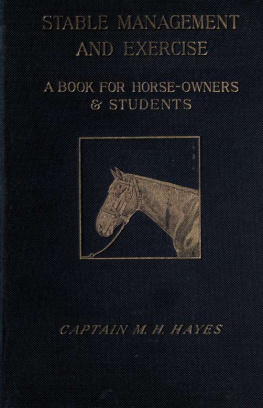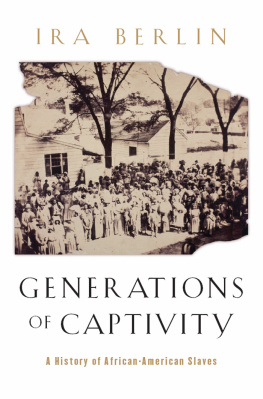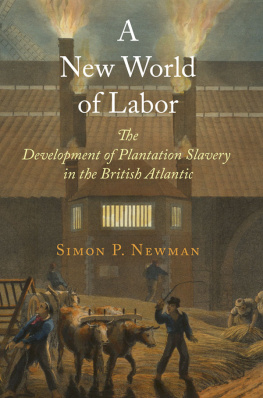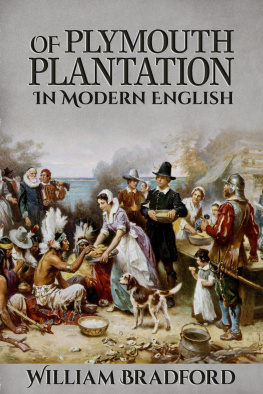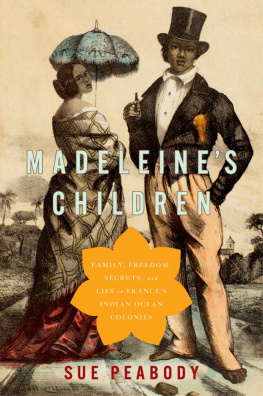Thank you for buying this ebook, published by NYU Press.
Sign up for our e-newsletters to receive information about forthcoming books, special discounts, and more!
Sign Up!
About NYU Press
A publisher of original scholarship since its founding in 1916, New York University Press Produces more than 100 new books each year, with a backlist of 3,000 titles in print. Working across the humanities and social sciences, NYU Press has award-winning lists in sociology, law, cultural and American studies, religion, American history, anthropology, politics, criminology, media and communication, literary studies, and psychology.
SLAVERY BEFORE RACE

Early American Places is a collaborative project of the University of Georgia Press, New York University Press, Northern Illinois University Press, and the University of Nebraska Press. The series is supported by the Andrew W. Mellon Foundation. For more information, please visit www.earlyamericanplaces.org.
ADVISORY BOARD
Vincent Brown, Duke University
Stephanie M. H. Camp, University of Washington
Andrew Cayton, Miami University
Cornelia Hughes Dayton, University of Connecticut
Nicole Eustace, New York University
Amy S. Greenberg, Pennsylvania State University
Ramn A. Gutirrez, University of Chicago
Peter Charles Hoffer, University of Georgia
Karen Ordahl Kupperman, New York University
Joshua Piker, University of Oklahoma
Mark M. Smith, University of South Carolina
Rosemarie Zagarri, George Mason University
SLAVERY BEFORE RACE
Europeans, Africans, and Indians at Long Islands Sylvester Manor Plantation, 16511884
KATHERINE HOWLETT HAYES

NEW YORK UNIVERSITY PRESS
New York and London
www.nyupress.org
2013 by New York University
All rights reserved
LIBRARY OF CONGRESS CATALOGING-IN-PUBLICATION DATA
Hayes, Katherine Howlett.
Slavery before race : Europeans, Africans, and Indians at Long Islands Sylvester Manor Plantation, 16511821 / Katherine Howlett Hayes.
p. cm.(Early American places)
Revised version of the authors thesis (doctoral)University of California, Berkeley, 2008.
Includes bibliographical references and index.
ISBN 978-0-8147-8577-5 (cl : alk. paper)
ISBN 978-0-8147-2469-9 (e)
ISBN 978-0-8147-7090-0 (e)
1. SlaveryNew York (State)Shelter Island. 2. African AmericansNew York (State)Shelter IslandHistoryTo 1863. 3. Indians of North AmericaNew York (State)History. 4. Shelter Island (N.Y.)Race relationsHistory. 5. Plantation lifeNew York (State)Shelter IslandHistory. 6. Sylvester Manor Plantation Site (Shelter Island, N.Y.) 7. Shelter Island (N.Y.)Antiquities. 8. Excavations (Archaeology)New York (State)Shelter Island.
I. Title. II. Series: Early American places.
E445.N56H39 2013
306.36209747dc23
2012035346
References to Internet Web sites (URLs) were accurate at the time of writing. Neither the author nor New York University Press is responsible for URLs that may have expired or changed since the manuscript was prepared.
New York University Press books are printed on acid-free paper, and their binding materials are chosen for strength and durability. We strive to use environmentally responsible suppliers and materials to the greatest extent possible in publishing our books.
Manufactured in the United States of America
10 9 8 7 6 5 4 3 2 1
For Mom and Dad
CONTENTS
FIGURES AND TABLE
Figures
Table
ACKNOWLEDGMENTS
Since I started with this project, as part of the UMass Boston team in 1997, I have been amazingly fortunate to participate within a number of different intellectual communitiesall of them encouraging, supporting, and critiquing my thinking and writing on Sylvester Manor. The first and most constant of these people have been those of the Fiske Center for Archaeological Research at UMass, who have put much time and love into the project. Steve Mrozowski, the director of the center and the PI for the Sylvester Manor project, poured a tremendous amount of time and energy into the planning, running and intellectual shaping of the project and it never would have gone anywhere without his leadership. Under his guidance, and with a generous donation from Mrs. Alice Fiske, the Andrew Fiske Memorial Center for Archaeological Research was established, and the Center to this day fosters great interdisciplinary research. Steve has been very generous, by allowing me to pursue this project as a dissertation and a book, and I would not be where I am without the opportunities he has provided me. I thank him also for his critical reading of this manuscript. David Landon, Heather Trigg, and Dennis Piechota have all been steadfast friends, collaborators, and level-headed thinkers in this process, and I hope their intellectual influence is evident in this book, along with the data they generously shared. Their warmth and quiet support have helped me more than they likely know, and they have been role models to me. With Steve, David, and Heather as PIs, this project was also supported for four years by the National Science Foundation, Grant Nos. 0243593 and 0552484.
The fieldwork at Sylvester Manor was accomplished through UMass Boston field schools in archaeology between 1999 and 2006, and I thank the countless students who gave up part of their summer to work with us. I was supported by a Fiske Center Pre-dissertation Fellowship one summer, and given work space and access to the collection for which the Center is responsible over the 2006-2007 academic year. A number of fellow students and colleagues shared the data they generated with their research, for which I am grateful: Sarah Sportman, Craig Cipolla, Ryan Kennedy, and Amy Foutch (with David Landon) for faunal analysis; Jack Gary for small finds and for the use of some of his photographs; Eric Proebsting (with Dennis Piechota) for micromorphology; and Sue Jacobucci (with Heather Trigg) for botanical. Craig Cipolla and Steve Silliman have provided inspiring different perspectives with their own work, and I have been grateful for the opportunities over the years to discuss those with them. Other UMass friends have contributed in various ways, especially Melody Henkel and her photographic eye, but also John Steinberg, Anne Hancock, Kate Lommen, Lee Priddy, Paolo DiGregorio, Dave Brown, and so many others. An earlier synthesis of work to date, to which many of these folks contributed, was published as a special issue of Northeast Historical Archaeology in 2007; Steve Mrozowski was coeditor with me on that, and David Landon was the general editor.
On Shelter Island, the project was pushed into being in part by the persistence and enthusiasm of Mac Griswold. She has been there throughout, has provided an encyclopedic knowledge of the documentary and architectural resources, and most recently has been a sympathetic and supportive voice as we both have brought our own writings on Sylvester Manor to fruition. Mac was instrumental in getting the astounding archive of historical materials out of the Manors leaky vault and into the protective care of the libraries of New York University. The people of the Shelter Island Historical Society, especially Louise Green and Beverlea Walz, contributed greatly to the project overall. Special thanksthe kind of which I can never give enoughgo to the people of the Manor itself. Mrs. Alice Fiske, seemingly delighted when we showed up once a year to put new holes into her lawn right outside her front door, opened her home and heart to us. Gunnar Wissemann and Rose Wissemann have been constant presences and institutional memories of the Manor, even since Mrs. Fiske passed away and the place has begun, once again, to undergo rapid change. The family members of Alice and Andrew Fiske who have supported the project and continue to support the preservation and increasing openness of the estate deserve great thanks, especially the current proprietor Eben Ostby for his commitment to the preservation efforts and Bennett Konesni, who has effectively given his whole life to the future of the place, as the Sylvester Manor Educational Farm. I must also thank the representatives of the Shinnecock Nation, especially Elizabeth Haile, who visited the site and engaged in discussions about our approach.
Next page




